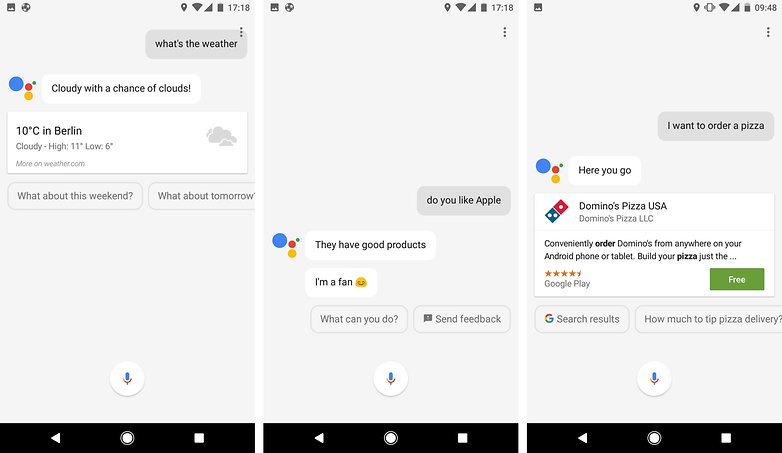WhatsApp still hasn’t acquired popularity worldwide, Snapchat is being used more among younger generations in many countries. However, it’s important to note that WhatsApp is one of the most used instant messengers in the world. At first glance, it’s hard to imagine things going badly for the app as it is used by so many people, but the pressure to outshine competitors is pushing WhatsApp to develop further. Let’s look at the current state of affairs before discussing its possible development.
The current strategy
The key to success
The instant messaging market suffers from the same thing as all the other markets: competition. There are several elements that explain WhatsApp’s success, Facebook buying over the app played a big part as it brought funds that allowed the application to remain free of charge and free from advertising. There’s no need for bank details, anyone can install the application for free and use its services without seeing advertisements, something that is rare today. With more funds, WhatsApp is perfectly able (not just in theory) of squaring up to the competition.
A dead-end model?
To outline the system in a simple (and exaggerated?) way, someone has an idea and integrates it into their application, the competitors see the idea and they do the same thing, then a new idea appears and the competitors take it too, and so on. We could try to find out which developer was the trendsetter but everyone does the same things these days, so it hardly matters who did it first.
The result is that, today, most apps of this kind do the same things: send text messages, voice notes, documents, calls… WhatsApp may not offer multimedia messages/content that automatically disappears after a certain amount of time (which personally doesn’t interest me anyway) but it decided to opt for a video communication system that you find in the competitors. This function is currently being tested on Windows Phone devices but it’s just a matter of time before we see the final version arriving on Android.
Problem areas
Some elements still need fixed. On one hand, the strategy difference between Messenger (a competitor app owned by the same company) and WhatsApp isn’t very clear. On the other hand, WhatsApp doesn’t offer technology that truly sets it apart from the competition. At first glance, we could think that this second point isn’t a problem given the number of users that the app has, but it would be better to be preventative and have an edge on the competition.
Adopting a new strategy
Introducing chatbots
People are associating the future of instant messaging more and more with chatbots. These are chat robots that allow you to communicate directly with a customer service or an ordering service. For example, if you want a pizza, you just have to tell the chat robot and it will order the pizza for you. You can already find the chatbots on the Messenger app and the concept also exists in other forms on Google Allo which centralizes requests with Google Assistant.
Messenger already has access to dozens of bots as the app wants to make money (contrary to WhatsApp, if you believe Facebook), you can bet that you’ll encounter many commercial bots. What about WhatsApp? It seems that Facebook sees a future for WhatsApp that is based more on interpersonal interaction with people. As a result, perhaps we’ll encounter chatbots that can be used in daily conversations, for example when you want to find out somebody’s name (through Wikipedia?), the translation of a word or a phrase in a foreign language, etc.

The arrival of personal artificial intelligence
From a futuristic perspective (maybe even from a pure science fiction perspective?), we could predict that that Google’s personal assistant concept will be replicated and adapted. We could have a form of artificial intelligence that understands our conversations, adapts to our habits, reminds us of birthdays, suggests that you do this or that with a photo, etc.
Facebook has the means to create something like this but it would take time. Is such an investment really necessary? Issues with confidentiality and invasion of privacy have already damaged its image, Facebook must be careful in the way that they announce things and treat them with transparency if it wants to go in this direction (while it’s not yet a dead-end).
The establishment of a new social ecosystem
Who says that WhatsApp should be limited to simple communication activities? Why not develop a whole network around the app and make it into a social platform (and not a social network like Facebook) in which we could find a social platform, perhaps even find some multimedia or games? This could be an ‘all in one’ application that would be the ultimate entertainment app, allowing the user to easily access services for amusement and to share what they are watching/listening to or what games they are playing.
With that said, Facebook has separated its social network application from its messenger, it’s not likely that it will want to associate several concepts with one app again. Does WhatsApp’s status make it an exception?
Of course, it’s also possible that Facebook could decide to abandon WhatsApp one day and switch its users over to Messenger, this possibility can’t be ruled out (although it’s not likely). What do you think is the most likely scenario?
No comments:
Post a Comment